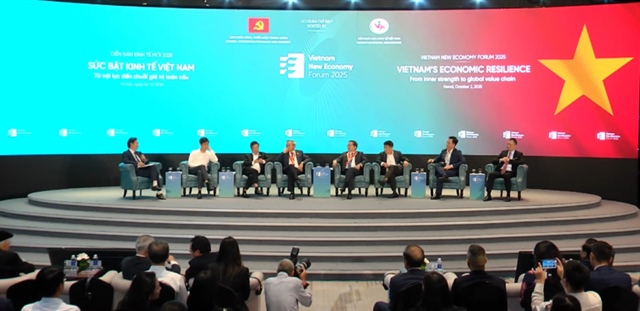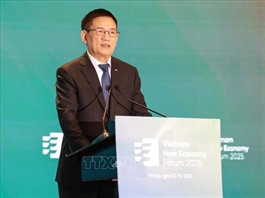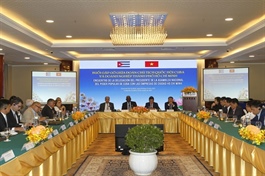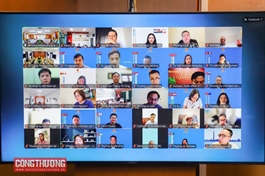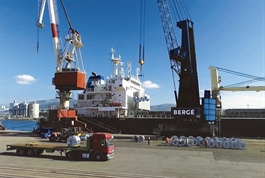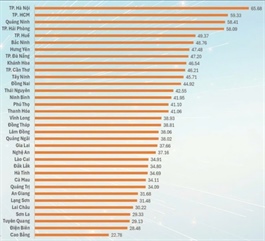Vietnam told to build resilience and innovate for stronger role
Vietnam told to build resilience and innovate for stronger role
Facing global uncertainties, Vietnam must strengthen domestic resilience, embrace new economic models, and spur innovation to climb higher in global supply chains, experts and businesses said at Vietnam New Economy Forum 2025
|
The third Vietnam New Economy Forum (VNEF 2025) opened in Hanoi on October 2, directed by the Central Policy and Strategy Commission and co-organised by the Department of General Economics, Institute of Policy and Strategy Studies, Vietnam Economic Science Association, and Vietnam Economic Times/VnEconomy. The event brought together policymakers, enterprises, and academics to explore how Vietnam can reinforce its foundations, unlock its domestic market, and expand its role in global value chains.
One of the highlights was a discussion on enhancing Vietnam’s position in global supply chains, where proposals focused on how the country can maximise domestic resources while capturing external opportunities.
Tran Kim Chung, chairman of CT Group, pointed to the low-altitude economy as a promising frontier. Applied in countries such as China, this model exploits the 1,000–3,000 metre airspace through drones, air taxis, and small helicopters to serve logistics, smart agriculture, tourism, construction, and emergency response.
According to Chung, this approach could also help address national challenges including food security, congestion, and climate adaptation. "This suits Vietnam’s conditions, as we are starting on the same line as many others. It is a golden chance to create new momentum for the economy," he said.
Breakthrough technologies and the need for innovation were also stressed. Ma Tuan Trong, managing director of Grab Vietnam, said enterprises must strengthen collaboration with each other and with government to drive innovation, while keeping consumers at the centre. "Technology is not a race just for the sake of it – it must also answer real needs. Only then can innovation be sustainable," said Trong, before proposing safe regulatory environments such as sandboxes to allow small- and medium-sized enterprises to test and scale new solutions.
Nguyen Trung Chinh, chairman of CMC Technology Group, urged a mindset shift from outsourcing to ownership. Companies should develop proprietary products and intellectual property instead of staying in low-value segments. "This applies to every sector, not just technology. Vietnam must master its products and creative value to climb higher globally," he said, citing India’s self-reliant technology path.
Alongside global integration, the domestic market was identified as a crucial driver. With 100 million consumers, rising incomes, and modern retail systems, Vietnam’s local market is a strategic advantage. Dau Anh Tuan, deputy secretary general of the Vietnam Chamber of Commerce and Industry, cited the film industry, where local productions are increasingly winning audiences over foreign blockbusters.
"Businesses that understand consumer demand and invest in creativity can fully conquer the domestic market. This is a gold mine if exploited properly, serving as a foundation for global expansion," said Tuan.
Speakers agreed that domestic advantages in culture, consumer insight, and distribution cannot be matched by foreign players. Leveraging these strengths would help Vietnamese brands grow strong at home before competing abroad.
Policy frameworks were also seen as decisive. Le Duy Binh, managing director of Economica Vietnam, called for regulations that encourage innovation while ensuring transparency and efficiency. "The government should regulate while also fostering growth by unlocking resources. Above all, it must strengthen business confidence through fair costs and a safe, predictable environment," he said.
Despite inflationary pressures, trade frictions, and geopolitical tensions, participants agreed that Vietnam can maintain momentum by combining domestic resilience with innovation and market development. Businesses with creativity and vision will be the catalysts, while enabling policies remain vital to unlock their potential.
- 18:17 03/10/2025


